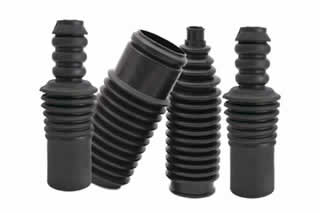
Rubber is used to make a wide variety of products. You can find O-rings, gaskets, hoses, bushings, cord stock, bumpers, connectors and more made of this polymer-based material.
While there are different ways to convert raw rubber into parts such as these, molding is one of the most common. Molded rubber still consists of the same polymer-based material as raw rubber, but it’s exposed to heat and pressure. The combination of heat and pressure manipulates the shape of rubber, allowing for the production of custom products. What are the benefits of molded rubber exactly?
Customization
Molded rubber is fully customizable. Rubber can be molded in different ways, some of which include injection, compression and transfer. Regardless, they all support customization. During the molding process, rubber can be manipulated into specific shapes and sizes. If you’re looking to buy a rubber part in a specific shape and size, there’s no better choice than molded rubber.
Waterproof
Like raw rubber, molded rubber is waterproof. You don’t have to worry about water damaging or penetrating through parts made of molded rubber. All forms of rubber are waterproof. Even when exposed to heat and pressure during the molding process, rubber will retain its waterproof properties. Molded rubber is completely waterproof.
Protection From Cracking
Molded rubber offers a high level of protection against cracking. Rubber products, of course, can crack. It may not occur immediately, but after being exposed to chemicals, sunlight or mechanical stress for an extended period, a rubber part may crack. With that said, molded rubber is resistant to cracking. The molding process that’s used to make molded rubber will change its physical properties so that it becomes stronger and better protected against cracking.
Retains Original Shape
Another benefit of molded rubber is shape retention. Molded rubber products are often used in applications where they are exposed to pressure, such as sealing applications. Molded rubber products will typically expand when exposed to pressure. Once the pressure has been removed, though, they’ll revert back to their original shape.
Supports Different Materials
Molded rubber supports different materials. Contrary to common belief, not all molded rubber is made of the same material. There are different types of rubber, many of which are used in the production of molded rubber. You can find molded rubber made of nitrile, neoprene, polyurethane fluorocarbon, polyacrylate and other types of rubber. These are just a few benefits of molded rubber.
